EPYC, Ryzen Pro Processors, Integrated Vega Graphics For APUs, 7nm Ryzen Roadmap

AMD Announces Threadripper, EPYC, And Ryzen Pro Processors, Integrated Vega Graphics for APUs, and an updated roadmap to 7nm.
At its financial analyst day in Sunnyvale, AMD continued rolling out its product roadmap, specifically announcing a much-anticipated 16-core/32-thread product at the high-end of the desktop space, known as Threadripper, as well as Ryzen Pro for the professional segment, EPYC for the data center, and the inclusion of Vega as an integrated GPU in forthcoming APUs. The company also announced that 7nm+ Zen products would debut in 2020.
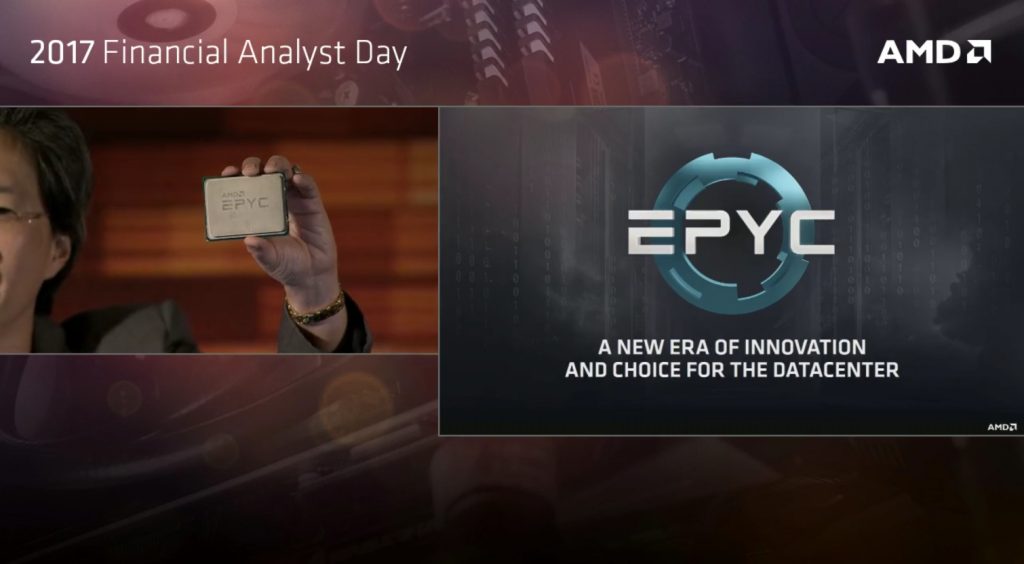
EPYC
To start the show, AMD CEO Lisa Su unveiled the new EPYC data center processor. EPYC appears to be the new branding for theNaples data center processors that AMD announced last year. These 32-core/64-thread processors support 128 PCIe 3.0 lanes, and AMD has designed them specifically to interact well with its Vega GPUs.
Su noted that the copious PCIe connectivity will allow the dual-socket server platforms to support more GPUs than Intel’s competing products. The processors support eight memory channels per socket, for a total of 16 DDR4 channels and 32 DIMMs in a two-socket server (up to 4TB of memory).
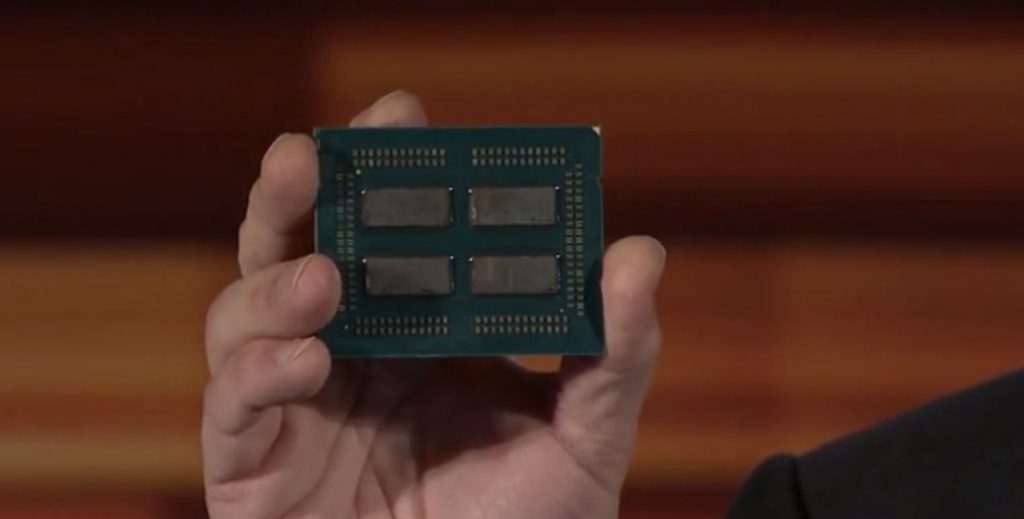
AMD also displayed EPYC with the heatspreader removed, and we spotted four 8-core Zeppelin die on a single package (MCP). These four die are glued together with AMD’s Infinity Fabric.

Threadripper
AMD also announced its Threadripper CPUs for the high-end desktop segment. These 16-core/32-thread processors will debut this summer, but the company didn’t provide any further details. Pricing will play an important role, but frankly, 16 cores is plenty exciting. Intel’s 10-core/20-thread i7-6950X Broadwell-E weighs in at $1,700, and considering AMD’s Ryzen pricing history, we can expect a much lower price point than that to get more cores.
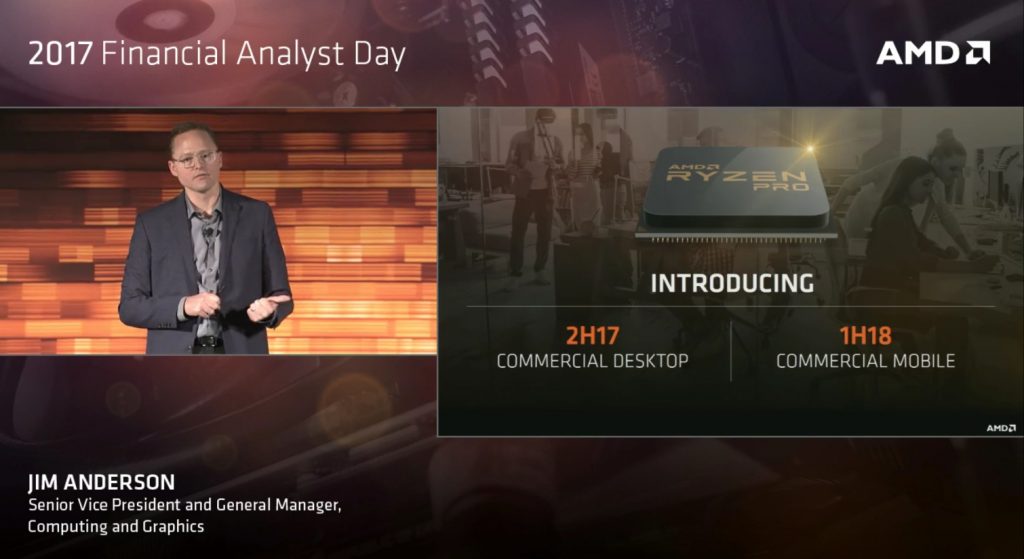
Ryzen Pro
AMD also announced its new Ryzen Pro series of processors. These new chips are destined for the commercial desktop and mobile segments and will launch in 2H17 and 1H18, respectively.
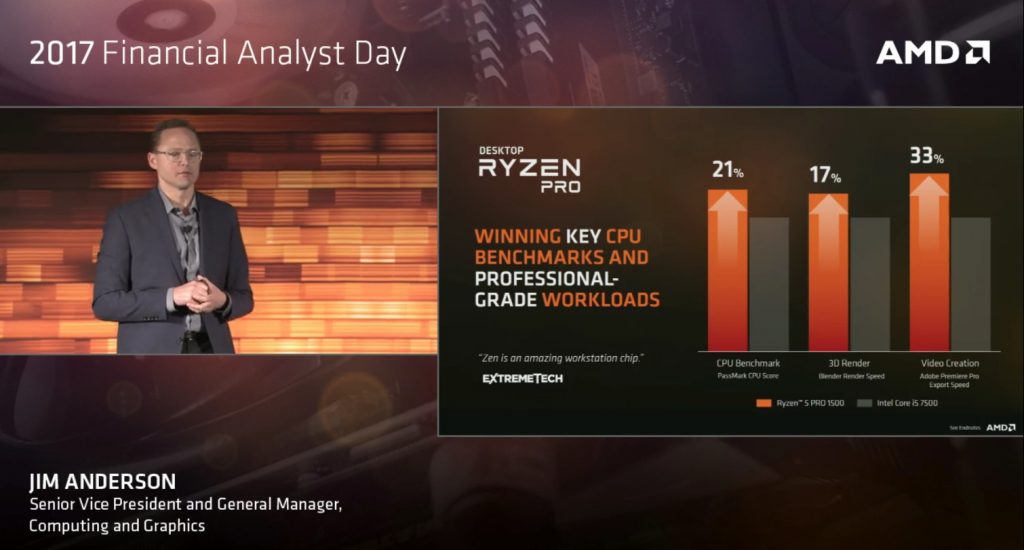
AMD, again, provided very little detail, but Ryzen’s extra cores and threads will play quite well in the professional segment, but the lack of integrated graphics may restrict the addressable market. AMD has also focused on providing enhanced security features for the new lineup, and we expect more details will follow.
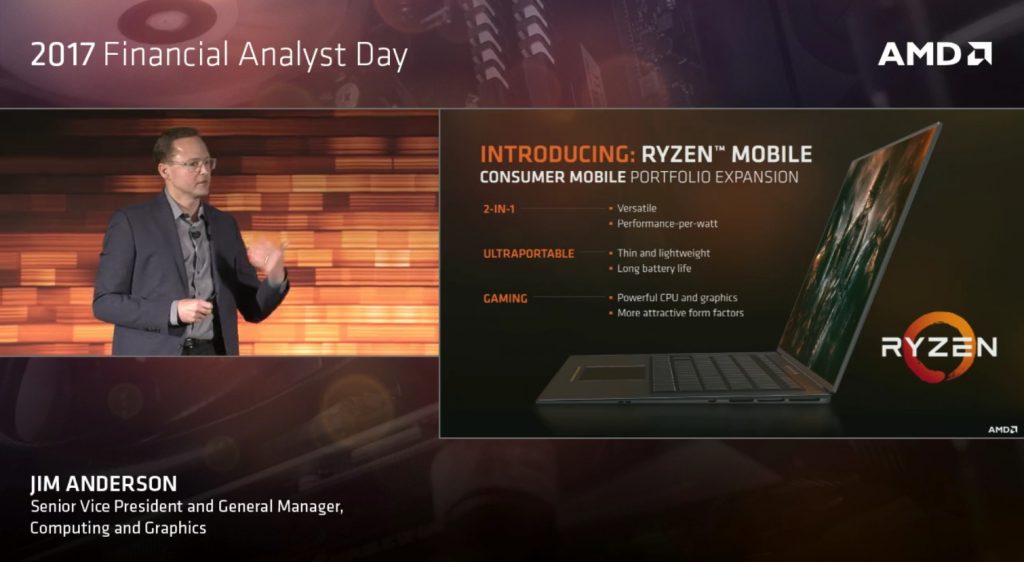
Integrated Vega Graphics
AMD announced that the Ryzen Mobile products will feature on-die Vega graphics, which is a great indicator that we can expect Vega integrated graphics on the forthcoming APUs, as well.
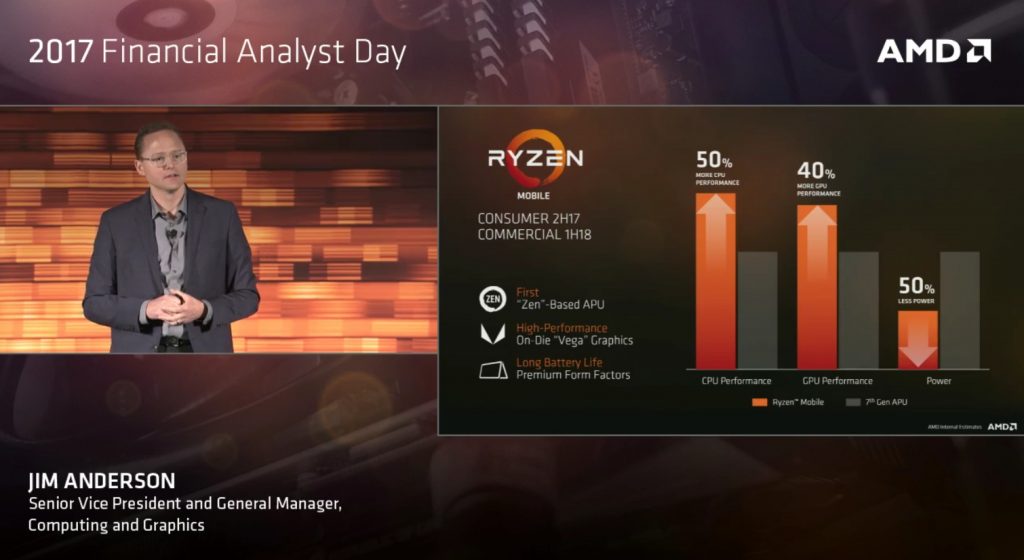
AMD also provided a few rough details, such as 50% more CPU performance than the 7th-generation (A-Series) APUs and 40% more GPU performance. AMD also claimed that they’ll consume 50% less power, which is attractive for the mobile segment.
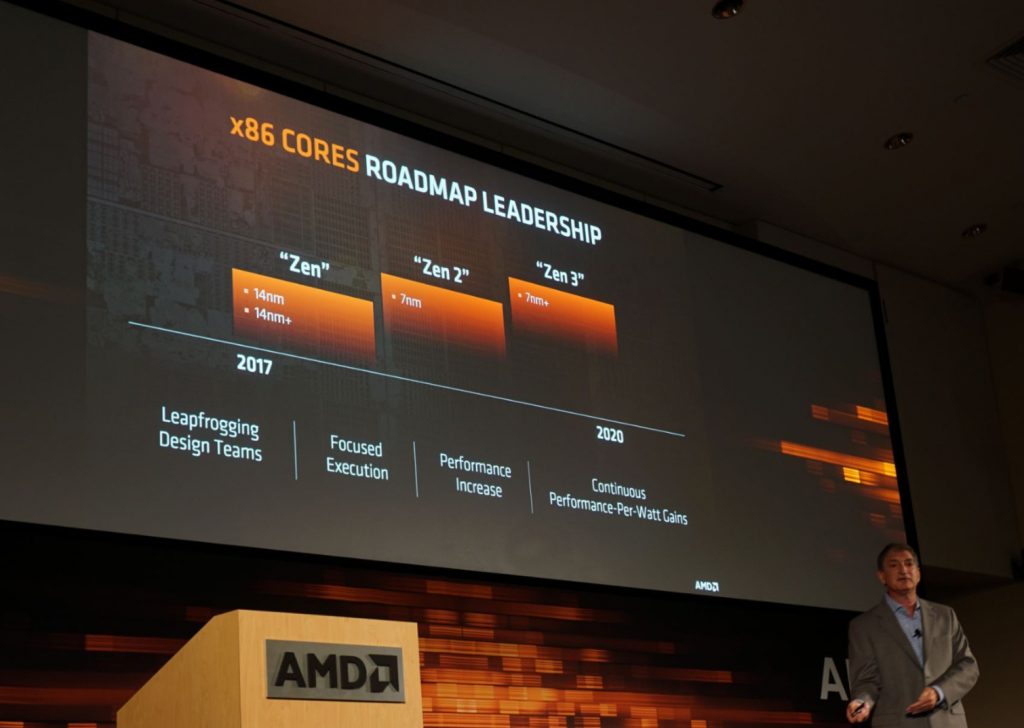
Finally, as encouraging as many of the announcements are, AMD has more to come. The company divulged that it will debut its Zen 3 products on Global Foundries’ second-generation 7nm+ process in 2020. The first generation 7nm process will obviously debut in the interim, but the company did not provide a firm timeline for it